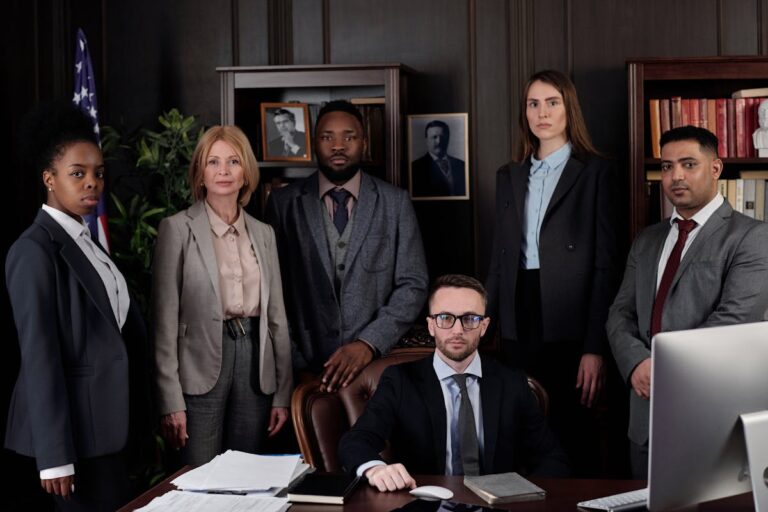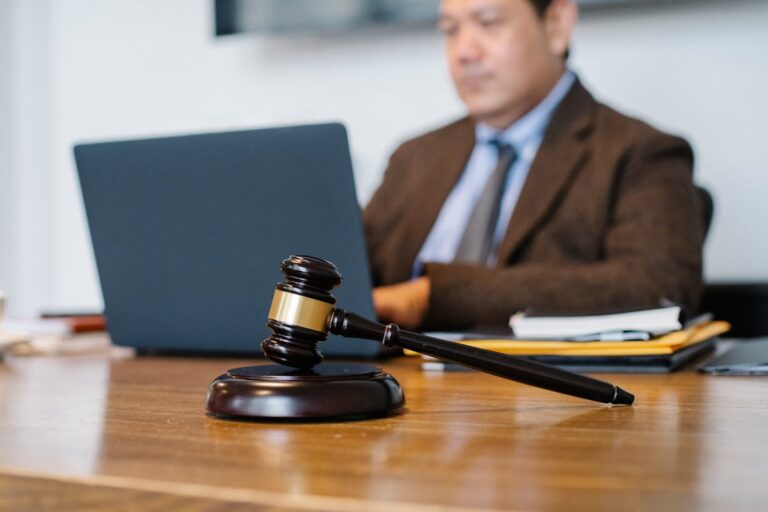The success of an attorney hinges critically on a structured approach, from meticulous case preparation to the final trial stages. This encompasses robust legal research, strategic evidence collection, and effective witness preparation, underpinned by the smart use of legal technology and paralegal support. Courtroom nuances and understanding jury psychology also play significant roles. However, what are the specific services that facilitate these processes and why are they so instrumental to an attorney’s success? It is this intriguing interplay of services and success that we shall explore further.
Understanding Case Preparation
The cornerstone of any successful legal proceeding, case preparation, demands meticulous attention to detail, strategic thinking, and a profound understanding of the law. It is a process that requires an exceptional skill set, as it is fundamentally tied to the outcome of a case.
An integral part of case preparation involves evidence gathering, an arduous task that lays the groundwork for a persuasive argument. This process not only includes collecting physical evidence but also involves the careful analysis of the obtained material. It is imperative to thoroughly examine each piece of evidence, considering its relevance and potential impact on the case. Inaccuracies or oversights during this stage can severely weaken a case, underscoring the significance of detailed scrutiny.
Simultaneously, witness preparation is essential. Witnesses often play a pivotal role in the legal proceedings, and their testimonies can substantially influence the jury. Hence, preparing witnesses means ensuring they understand the gravity of their role, coaching them on how to convey their experiences effectively, and preparing them for potential cross-examination.
Importance of Legal Research
The importance of legal research in the practice of law cannot be understated, as it forms the bedrock of effective case preparation and courtroom strategy. By mastering the fundamentals of legal research, an attorney can greatly influence courtroom decisions by presenting compelling evidence and well-grounded legal arguments. Furthermore, proficient navigation of legal databases is a critical skill for attorneys, ensuring timely access to relevant case laws, statutes, and legal literature, ultimately enhancing the quality of legal representation.
Fundamentals of Legal Research
Legal research stands as a cornerstone in the world of law practice. It is the engine that drives the legal process, providing attorneys with the necessary tools to advocate for their clients effectively. It involves the mastery of legal terminology and the application of specific research methodologies to explore and interpret law, case precedents, and legal arguments.
Legal terminology is an essential component of legal research. It’s the language that lawyers use to communicate complex ideas and arguments. Understanding this language is vital for comprehending the issues at stake, identifying relevant legal concepts, and crafting persuasive arguments.
Research methodologies also play a significant role in legal research. They guide the process of identifying, gathering, and analyzing legal information. Attorneys need to be proficient in different techniques, such as statutory interpretation, case law analysis, and legal writing, to produce compelling legal arguments.
Influencing Courtroom Decisions
Mastering legal research greatly sways courtroom decisions, underscoring its inherent value in the judicial process. A deep understanding of facts, precedents, and legal principles allows attorneys to craft persuasive arguments, which are critical in influencing the perceptions of jurors and judges.
Jury psychology plays an essential role in this process. A well-researched case enables attorneys to create emotional appeals that resonate with the jury, stimulating empathy and understanding. Moreover, strategic questioning of expert witnesses, based on thorough legal research, can considerably enhance credibility and influence the jury’s view of the evidence presented.
Courtroom demeanor is another factor that can be influenced by thorough legal research. The confidence gained from meticulous preparation often translates into a commanding courtroom presence, contributing to the overall persuasion strategy.
Evidence presentation and trial narratives are also deeply impacted by legal research. An attorney equipped with a well-researched case can weave a compelling story that aligns the facts, evidence, and legal principles, making the narrative more persuasive to the court. As a result, legal research, while a complex and demanding process, is fundamental to attorneys’ success in influencing courtroom decisions.
Navigating Legal Databases
Delving into the world of legal databases can greatly bolster the quality of legal research conducted by attorneys, thereby enhancing their success rate in legal proceedings. These databases are a trove of essential legal information, including statutes, case law, legal opinions, and scholarly articles. Yet, their full potential can only be tapped when attorneys have a robust understanding of legal terminology and are proficient in database navigation.
Understanding legal terminology is imperative in database navigation. Legal jargon is not only complex but also highly specific. Every term or phrase used in a database carries a particular meaning, which if misunderstood, can lead to erroneous research outcomes.
Effective database navigation requires more than just learning the ropes. It involves knowing how to utilize advanced search features, how to refine search results, and how to cross-reference information within the database. In addition to that, it requires an understanding of how legal information is classified and indexed within the database.
Efficient use of legal databases can greatly enhance an attorney’s research process, enabling them to build stronger cases and develop more compelling arguments. Evidently, mastering legal terminology and database navigation is not just an added skillset, but a fundamental necessity for attorney success.
Role of Paralegal Services
An attorney’s toolkit would be incomplete without the invaluable contribution of paralegal services. Playing a pivotal role in the legal process, paralegals enhance an attorney’s efficiency, bolstering their ability to deliver superior legal representation.
Paralegal roles extend beyond mere administrative tasks. They are entrusted with the responsibility of maintaining legal ethics, ensuring that client communication is upheld to the highest standard. Effective case management, coupled with meticulous document preparation, enables the attorney to focus on crafting litigation strategies. The paralegal’s role in trial assistance is not to be understated; their expert handling of evidence organization aids in delivering compelling court presentations.
Paralegals are well-versed in various research methodologies, providing the attorney with an exhaustive analysis of case backgrounds and legal precedents. This data-driven approach guides the attorney in their decision-making process, reinforcing their litigation strategies.
Moreover, paralegals contribute to their firm’s professional development by staying abreast of legal trends and changes in law. They are an essential cog in the legal machinery, their proficiency enhancing the attorney’s potential for success. Consequently, paralegal services form an integral, indispensable part of the legal landscape.
Utilizing Legal Technology
Building on the foundations laid by paralegal services, the adoption of legal technology further amplifies an attorney’s capacity to deliver exceptional results. The integration of cutting-edge solutions such as artificial intelligence and predictive analytics enables law firms to optimize workflows, enhance case management, and bolster data security.
Modern legal technology offers numerous advantages:
- Document automation and e-discovery tools streamline the cumbersome process of sorting through vast amounts of information, thereby saving time and reducing human error.
- Virtual collaboration platforms foster seamless communication between attorneys, clients, and paralegals, enhancing client engagement and boosting productivity.
- Advanced trial presentation software leverages the power of visual storytelling, helping lawyers present their case compellingly and persuasively.
Furthermore, the use of predictive analytics offers strategic insights into case outcomes, enabling attorneys to make data-driven decisions. However, while these technologies offer substantial benefits, their adoption must be coupled with a firm commitment to data security to protect sensitive client information. By harnessing the power of legal technology, law firms can not only improve their efficiency but also offer better service to their clients, thereby achieving greater success.
Pre-Trial Strategies and Tactics
Maneuvering the labyrinth of the pre-trial phase requires astute strategies and well-planned tactics to secure a favorable outcome. Jury selection strategies, for instance, must be meticulously formulated and executed. Careful profiling and questioning can help attorneys identify potential biases and ascertain an impartial jury.
Equally important are witness preparation techniques. Witnesses should be educated on courtroom etiquette guidelines and the trial timeline management to guarantee their testimony aligns with the overall case theme. This requires an intricate understanding of human psychology to coach witnesses effectively.
The way evidence is presented also plays a pivotal role in shaping the jury’s perception. Evidence presentation methods should be clear, precise, and in sync with the developed case theme. Opening statement approaches should introduce the jury to the case’s facts, laying a solid foundation for the argument, whereas closing argument tactics should succinctly tie everything together, reinforcing the case theme and persuasively swaying the jury.
Litigation Support Services
While the pre-trial phase demands strategic planning and execution, the subsequent stages of a case necessitate an extensive suite of litigation support services. These services streamline the litigation process, guaranteeing that attorneys can maintain a laser-focused approach. They cover a broad spectrum of activities, from the intricate discovery process to the critical task of jury selection.
- Case management systems: These digital tools help attorneys track litigation timelines, manage trial exhibits, and adhere to courtroom decorum. They facilitate seamless coordination between various case aspects guaranteeing nothing falls through the cracks.
- Expert witnesses and witness preparation: Expert witnesses can make or break a case. Selecting the right expert, coupled with thorough witness preparation, can greatly strengthen a case. These services guarantee that your witnesses are ready to stand in the courtroom, presenting evidence in a persuasive manner.
- Settlement negotiations: Here, litigation support services can lend their expertise to guide attorneys in negotiating favorable settlements. This includes understanding the nuances of the case, gauging the opponent’s strategy, and determining the most appropriate approach.
Embracing these litigation support services can empower attorneys to handle their cases more effectively and efficiently, ultimately driving success in the courtroom.
Navigating the Courtroom
Maneuvering the complexities of the courtroom requires a deep understanding of legal procedures, adept interpersonal skills, and strategic thinking. The courtroom dynamics can be unpredictable, with every trial presenting unique challenges. Attorneys must be able to anticipate these changes and adapt their strategies accordingly.
A key element of courtroom navigation involves understanding jury psychology. The ability to read and influence a jury’s perception of the case can greatly impact the trial outcome. This involves not just presenting evidence and arguments, but also framing them in a way that resonates with the jury’s values, biases, and preconceptions.
Effective courtroom navigation also requires attorneys to manage their relationships with other courtroom actors, such as the judge and opposing counsel. This involves striking a balance between assertiveness and tact, demonstrating respect for the court while also advocating vigorously for the client.
Post-Trial Follow-ups and Analysis
Positive post-trial outcomes hinge on thorough analysis, essential debriefing, and meticulous documentation. The process of analyzing trial outcomes facilitates understanding of the strengths and weaknesses of the case, informing future strategies. Additionally, a debriefing session allows for reflection and learning, while rigorous documentation preserves vital evidence and records for future reference or appeals.
Analyzing Trial Outcomes
Armed with a thorough understanding of the trial process, it’s essential for attorneys to explore an extensive post-trial analysis. This process involves a detailed assessment of the trial performance metrics and the use of outcome prediction models. It allows lawyers to evaluate their strategies, identify areas for improvement, and refine their approach for future cases.
Post-trial analysis involves several key elements:
- Trial Performance Metrics: These are quantifiable measures used to track and assess the efficiency and effectiveness of a trial. They provide insights into the strengths and weaknesses of the attorney’s performance.
- Outcome Prediction Models: These statistical models use data from past trials to forecast the likely outcome of a case. They help attorneys to develop more effective strategies.
- Comparative Analysis: Comparing the outcomes of similar cases helps to identify trends and common factors that may influence the result of a trial.
Analyzing trial outcomes is a powerful tool for continuous improvement and success in the legal field. It provides attorneys with a data-driven approach to enhance their strategies, improve their performance, and ultimately, increase their chances of winning cases. This detailed post-trial analysis is an essential step towards achieving attorney success.
Importance of Debriefing
Just as analyzing trial outcomes illuminates areas for strategic improvement, debriefing after a case–a practice often referred to as post-trial follow-ups and analysis–carries its own significant importance.
In the legal field, the debriefing phase allows attorneys to refine their strategies and reassess their performance. Effective debriefing techniques are not merely retrospective; they foster forward-thinking solutions. They entail thorough analysis of the case, including the examination of key decisions and outcomes, identification of strengths and weaknesses, and above all, learning from the experiences.
Feedback sessions play an integral role in the debriefing process. They provide an opportunity for attorneys to share their insights, discuss successes and challenges, and express their views on what could have been done differently. These sessions are not only critical for personal growth and team development, but also for improving future case management and trial strategies.
Post-Trial Documentation Essentials
Drawing from the insights garnered during the debriefing process, the essence of post-trial documentation cannot be overstated. This vital phase of litigation involves meticulous verdict analysis, preparation for possible post-trial motions, and keen appellate considerations. Furthermore, it serves as a bridge to effective client communication and smooth case closure.
Three key elements underscore the importance of post-trial documentation:
- Verdict Analysis: Through thorough scrutiny of the trial’s outcome, attorneys can identify and document specific areas of success or failure. This information is invaluable for future legal strategy planning and for informing any potential appeals.
- Appellate Considerations: Post-trial documentation should include a detailed exploration of potential grounds for appeal. On the basis of the trial record, legal documentation must be prepared to argue for a retrial, if necessary.
- Client Communication and Case Closure: Detailed post-trial documentation facilitates transparent and informative communication with the client, leading to a satisfactory case closure. It allows attorneys to explain the verdict, potential next steps, and any associated legal implications.
Frequently Asked Questions
What Are Some Common Career Paths for Attorneys Outside of Courtroom Trial Work?
Alternative legal careers for attorneys outside of courtroom trial work often involve non-litigation roles. These may include corporate counsel, legal consulting, academic positions, policy making, and roles within governmental or non-profit organizations.
How Does an Attorneys Work-Life Balance Typically Look?
Statistically, attorneys often experience high levels of work-life imbalance. Increased demands often lead to lack of work life integration, potentially causing attorney burnout. This imbalance underscores the need for effective stress management and work-life balance strategies in law practice.
How Are Attorney Fees Determined and Billed?
Attorney fees are determined and billed through various fee structures, including hourly rates, flat fees, or contingency fees. These billing practices depend on case complexity, attorney experience, and client’s financial ability.
What Is the Role of Ethics in an Attorneys Practice?
Ethics in an attorney’s practice navigates ethical dilemmas, ensuring adherence to professionalism standards. For instance, maintaining client confidentiality, even when pressured otherwise, reflects ethical practice, guiding decision-making and reinforcing trust in the attorney-client relationship.
How Does the Attorney-Client Privilege Work in Practice?
The attorney-client privilege safeguards confidential communications, promoting honest dialogue. However, privilege exceptions exist, such as crime-fraud, where confidentiality doesn’t protect communications intending to commit a crime or fraud, ensuring ethical practice within the legal profession.






